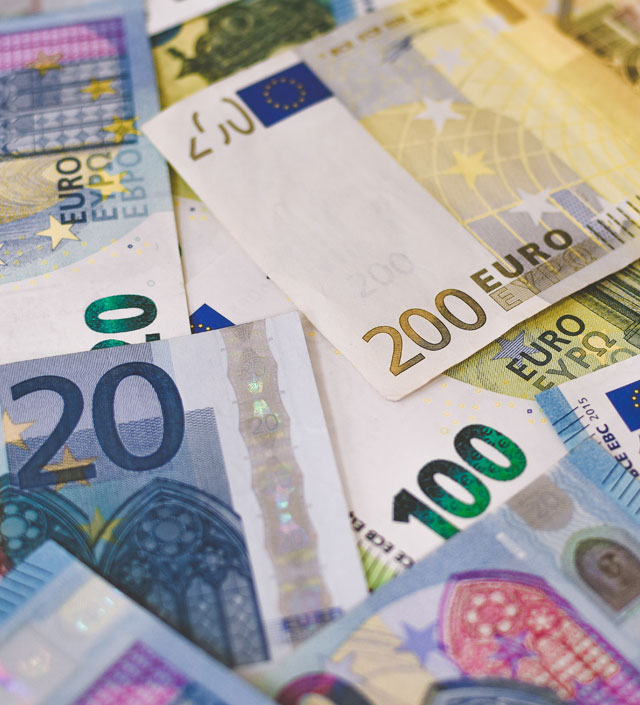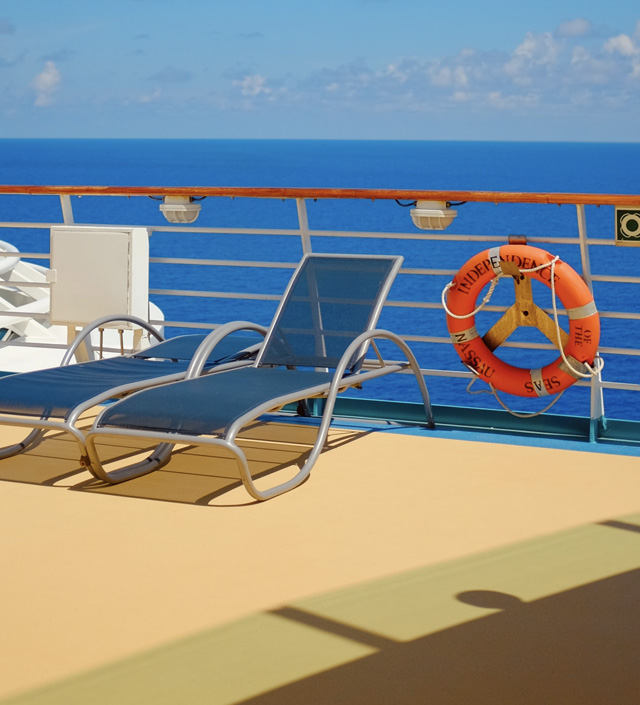Editor’s Note: If your clients are vacationing abroad this summer, share these tips with them – they’ll appreciate it.

It feels uncomfortable walking around without cash. During a port stop in Southampton, U.K., I left the ship, took the shuttle bus into the center of town and realized I did not have my wallet. I could look, but couldn’t buy things.
Years ago, we stayed at an inn in the French countryside. It was in the middle of nowhere. They did not take credit cards or travelers checks. It was a Sunday. Banks were closed. I had U.S. currency. Guess what? They didn’t take that either. Do not let this happen to you.
Let’s look at some practical (and other common sense) ideas for getting cash overseas.
1. Use your debit card.
The world has changed since my French countryside experience. Banks have ATMs, often called cashpoints in Europe. There are a few networks in Europe. Your card should work in one of them.
- Tip #1: Tell your bank or financial advisor you will be traveling overseas. They will make a notation on your account.
- Tip #2: Ask what banks are on the same system as your bank.
- Tip #3: If the ATM doesn’t work with your card, don’t panic. The time difference might mean that’s when your bank takes the system down for servicing. (Like 2:00 a.m. on a Saturday morning, which is 7:00 a.m. in London.)
2. Buy local currency from your bank.
Get some cash before you travel. If your account is with a major bank, they should be able to do this on a couple of days’ notice.
3. Bring U.S. dollars with you.
This makes sense because the U.S. dollar is treated as the world’s reserve currency. You should be able to walk into a bank overseas and convert it into local currency at their prevailing exchange rate.
- Tip #1: Money is converted with a bid/offer, similar to buying and selling a stock back home. This rate should be posted.
- Tip #2: Banks should have a better exchange rate than hotels.
- Tip #3: Some institutions charge a commission in addition to the exchange rate spread. Ideally banks do not do that.
- Tip #4: Do not accept an offer to exchange cash from a helpful guy on the street. The reasons are many and obvious.
4. Get a cash advance on your credit card.
This is an option if you have exhausted your logical alternatives. Bear in mind the interest rate on cash advances is higher than the rate on purchases.
5. Get emergency cash from American Express.
If your wallet and cards are stolen, you have a serious problem. AmEx offers an emergency service. Bear in mind, AmEx has affiliate locations in many major cities. They are often local travel agencies, not the big building in the center of Paris with the illuminated American Express sign you saw in the movie “Charade.”
6. Call your financial advisor.
Helping clients is part of the service you should expect. Major firms often have locations around the world in major financial capitals. Alternatively, walk into the local office of your financial services firm and ask them to call your advisor in the U.S.
7. Ask the ship to add it to your bill.
This might work with your hotel, too. If you are short of cash, ask if you can get a small amount and have it added to your room or statement account. Your account is settled up with the credit card they have on file.
8. Ask your friends.
If you are traveling with friends and run short of cash, ask if they can lend you some. These are good friends, of course. You can either pay them back when you all get home, or you can pick up the next couple of dinner checks on the trip in payment.
9. Keep a foreign travel wallet at home.
Now you are planning ahead. You keep a wallet or envelopes with foreign currency alongside your passport. When you are heading overseas, you have money for taxi fares until you get to an ATM in town.
10. Buy out your friend’s extra cash.
This is another advance planning strategy. Let your friends know you are happy to buy their extra euros when they return from vacation. The exchange rate is easy to find. It’s a good deal for them and a good deal for you.
If you or your clients are stuck for cash when abroad, it’s good to know there are options.
Bryce Sanders is president of Perceptive Business Solutions Inc. He provides HNW client acquisition training for the financial services industry. His book, “Captivating the Wealthy Investor,” is available on Amazon.
—————————————————————————————————
Reader Comments
We have clients who live overseas, and others who travel overseas often. We use Schwab as our custodian. One thing we have done is set up “travel” accounts for those clients, with a debit card (no foreign trx fees by Schwab), depositing a limited amount of funds there. That way, if the client’s debit card is stolen, it’s not linked to their major investment account with a pathway to steal a LOT, instead of just a little. Also, we can easily transfer more from the major investment account into folks’ “travel” accounts if they just drop us a line while overseas (we do call to confirm transfers verbally but that’s easy nowadays).
For our clients overseas we recommend a Chase or Citi bank account. That way they have a major American bank we can transfer to. We’ve had clients with smaller foreign banks that are impossible to work with.
Also, wiring money overseas is challenging sometimes. We had a wire fail to Australia of all places, to a major bank there. It was for a property purchase. Thank goodness I insisted on setting it up very early in the process, because we had just enough time to send it again – BEFORE the original wire had been recovered, I might add.
— Michelle Rand, Cascade Investment Advisors







